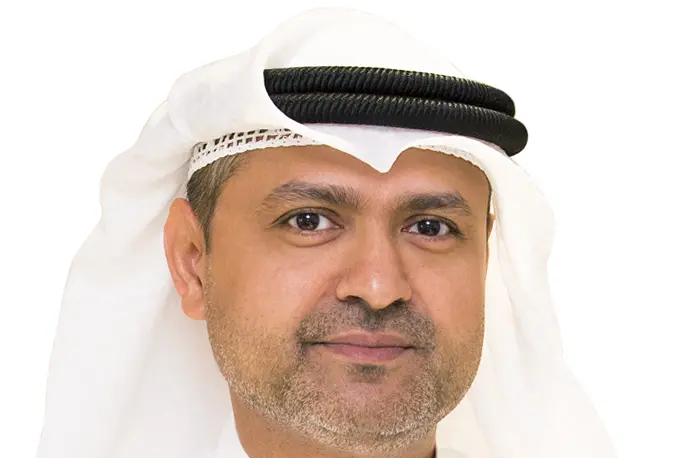PHOTO
ADX-listed Eshraq Investments may dispose of its public equity assets within Goldilocks Investment Company Limited as it seeks to focus on private equity and bring its investments under its own control to rebalance its portfolio.
CEO Mohamed Al Sayed Al Hashimi told Zawya that Eshraq is seeking to lower its exposure to companies that shareholders can invest in of their own accord – stock market-listed companies – and instead move towards private equity.
Last week, Eshraq announced the new strategy with a private equity focus as well as transitioning legacy assets, including those within its real estate portfolio.
Real estate will still remain a core pillar of Eshraq, unless the company received ‘an excruciatingly good offer’, the CEO said.
Al Hashimi, who was appointed in August, having previously held roles at ADNOC Group and subsidiaries, said Eshraq’s prior strategy of exiting legacy assets and increasing fund exposure had ‘not been appreciated’ by investors and shareholders.
Now, super prime plots owned by Eshraq, the majority of which are in Abu Dhabi Global Market (ADGM), are going to be developed for sustainable income.
Meanwhile, the Goldilocks fund, which is 99.5% owned by Eshraq, following a share swap deal with SHUAA Capital, will evolve.
Shareholders do not need an investment management company to invest in public equities, he said, but such companies are needed for private equities.
Eshraq is to invest in companies valued at $50-$100 million and bring them to a level of maturity within five to seven years, or four to five years where possible. A scale up is also expected to take place for a legacy asset within Goldilocks that has performed exceptionally.
Another investment under consideration is in a sector ‘critical to the region’, but due diligence is still under way.
Al Hashimi said it was not possible to give the names of specific Goldilocks investments as it has been determined that it was not fully within Eshraq’s right to disclose, as the fund is managed by SHUAA GMC.
A shareholder circular sent before the August 2022 share swap deal, under which Eshraq acquired the Goldilocks fund from Dubai-listed SHUAA Capital, showed the majority of its investments were in companies listed on the Dubai Financial Market (DFM) and Abu Dhabi Securities Exchange (ADX).
Shareholder records show that Goldilocks still holds 13.99% of Dubai-listed Islamic insurer Salama, while Eshraq itself is also major shareholder of that entity, holding 10.86%.
Zawya reported after the share swap transaction was completed that Goldilocks had acquired 50% of Thalassa Investments, the partnership that holds 100% stake in Stanford Marine Group and Allianz Marine & Logistics Services.
Speaking about the Goldilocks transaction, which took place a year prior to his appointment, Al Hashimi said his view was that an investment company cannot take a major portion of its balance sheet and fully outsource it.
Outsourcing makes sense for a sovereign wealth fund or a larger company to diversify, to make a natural hedge against management’s investment decisions and strategy, he said, but not in the case of smaller companies, as it is not sustainable or value-accretive to shareholders.
Reservations around the valuation of the Goldilocks fund resulted in write downs and contributed to losses reported up to and including the first quarter of 2024, reaching AED 306 million ($83 million).
Full year 2023 financial results said Eshraq had an investment in Goldilocks with a carrying amount of AED 1.337 billion, which represented 58.7% of its total assets.
The road ahead
Eshraq’s largest shareholder is Abu Dhabi Financial Group, which was the subject of a reverse merger with SHUAA Capital in 2019 and has a board seat, Al Hashimi said.
While a new strategic shareholder would be “welcome”, Al Hashimi described it as not something that Eshraq is actively seeking.
On market rumours about a possible merger with SHUAA, he said: “We look at all avenues for growth, we have done that with our strategy, if at some point there is something in the works, if it does make sense at some point to contemplate it, at the appropriate time we will contemplate it, and we will comment on it.”
(Reporting by Imogen Lillywhite; editing by Seban Scaria)




















